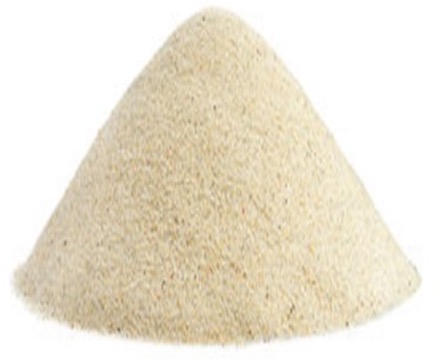Subsection 7.5.2 The Sorites Paradox
Suppose that we accept the following two premises:
[1] One grain of sand is not a heap.
[2] One grain of sand is too small to make a difference in determining whether something is or is not a heap.
Then, nothing, including this can be a heap:
But it clearly is a heap.


Thus we appear to have a logical paradox, classically called the Sorites Paradox.
The English word “heap” is vague: Are 75,000 grains enough? 120,000 grains? So we have a problem in deciding how to map English sentences about heaps into logic.
But we do not have a logical problem. The reason that we appeared, above, to get into trouble, is that we chose, as premises, to claims that don’t, in fact, do a good job of characterizing heapness.
Exercises Exercises
Exercise Group.
Sometimes, a Sorites-like problem formulation may look reasonable (as in the case of the heap of sand). But sometimes it’s obvious that such a pair of premises doesn’t correspond to the situation. In these latter cases, it’s easy to see how to write premises that do clearly define the boundary between having some property P and not having it.
Mark each of the following pairs of premises as Sorites-like if, as in the sand example, it’s hard to decide how to get out of the apparent paradox. Mark it not Sorites-like if it is straightforward to write a more accurate set of premises.
1.
A one word story isn’t a novel.
Adding one word to a short story won’t make it a novel.
2.
A one-year old is not old enough to drive.
Getting one year older doesn’t change whether or not you’re old enough to drive.
3.
A one gram package is easy to carry.
Adding one gram to a package doesn’t change how hard it is to carry.
4.
(Part 4) One credit isn’t enough to get you a degree.
Getting one additional credit can’t make you degree-eligible.
5.
(Part 5) One molecule of detergent won’t get the clothes clean.
Adding one additional molecule of detergent to the wash won’t change how clean the clothes get.
